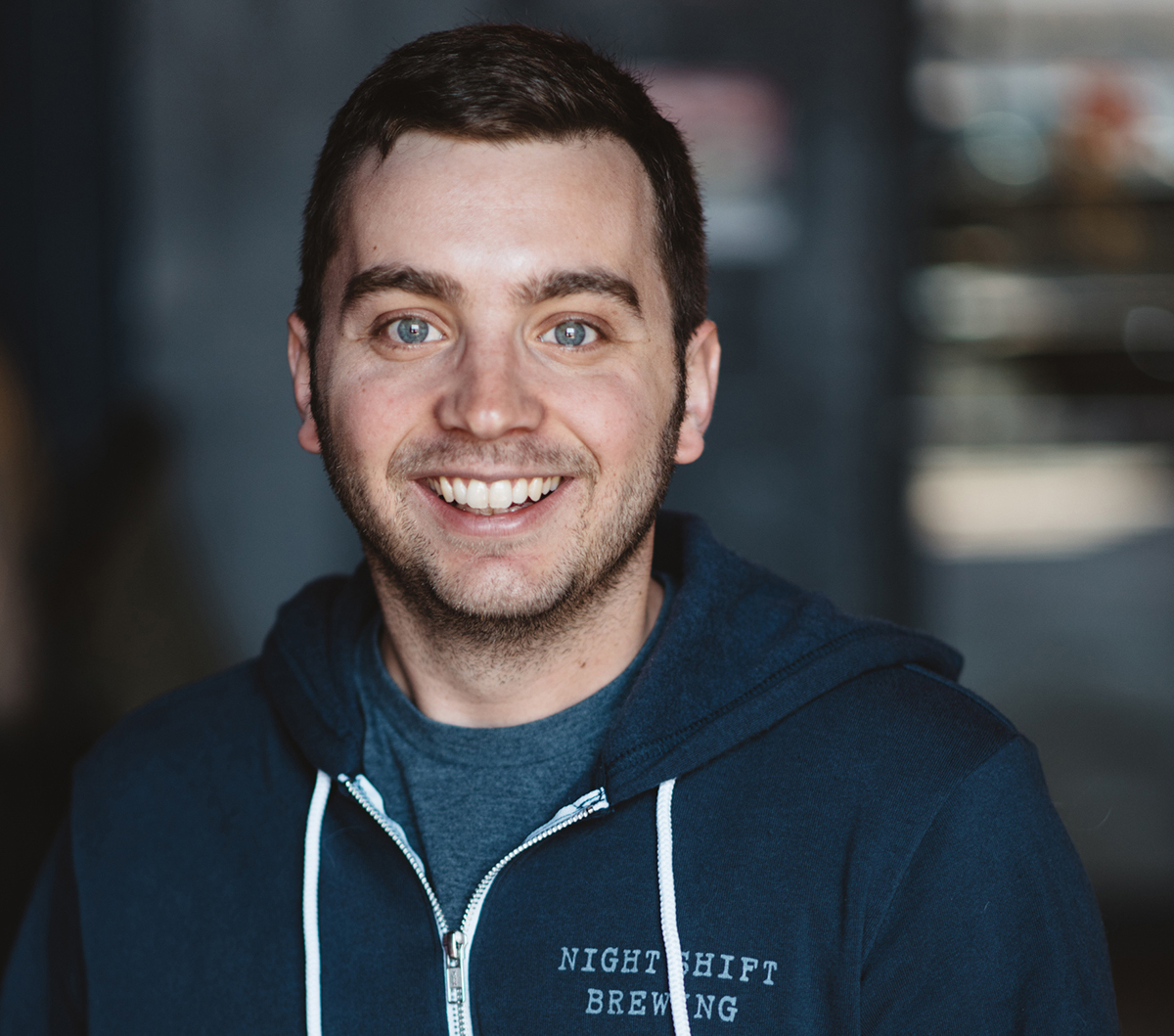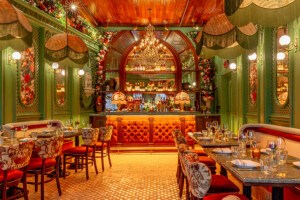Rob Burns on Unity, Passing the Torch, and Massachusetts Beer

Rob Burns, co-owner of Night Shift Brewing and president of the MA Brewers Guild. / Photo by Tim Oxton.
It’s been a big year for Rob Burns, co-owner of Everett’s Night Shift Brewing. He recently opened a new taproom, acquired new brewing equipment, and is in the midst of expanding his operation. Now he’s adding a new role—president of the Massachusetts Brewers Guild.
Burns became involved in the guild a little more than a year ago to help foster relationships between brewers that he felt the state lacked at the time. He was nominated by former president Rob Martin (Ipswich Brewing) to lead it this year, while Martin will continue to advocate on behalf of the guild in the State House, with hot button issues like third-party distribution and growler reform on a lot of brewers’ minds. Burns hopes to use his new position to further build on the community craft beer is known for, and to showcase what he believes to be some of the best beer in the world, made right here in Massachusetts.
What advice did Rob Martin give you upon taking over the role?
He said something like, “good luck. You might regret this, but you’ll be fine.” [Laughter] He had been the president for the past six years, and is excited to free up his time to focus more on government affairs. There are a bunch of important issues coming down the pipeline that need a lot of attention, and have quite literally been a full-time job for him. It’s exhausting work, but he’s done a tremendous job focusing on our legislation efforts, while I was always focusing more on the community aspect. I told him, “Maybe we can divide and conquer: You focus on protect, and I’ll focus on promote.”
How will your role at Night Shift change because of this?
It’s a volunteer position to be the president and be on the board, so we all still have our day jobs. I’ve only been president for a couple of days, and I feel like half of my time at the brewery has already been focused on the guild and the next steps. I’m fortunate to have two other cofounders [Michael Oxton and Michael O’Mara] that support me in this role, and are willing to shuffle around some of the workload so that I’m freed up to handle the guild stuff.
What does all of this mean for Night Shift Brewing?
Night Shift has always been built on this foundation that we’re here not to just serve ourselves, but to help others. Since I joined the board, we’ve held three meetings [at Night Shift] where we shut down the whole taproom and just had members come and meet. We lost the revenue from the night, still staffed people, and gave away free beer, but that’s pennies in the world of what we’re trying to accomplish as a group. We held this week’s meeting at Jack’s Abby, and they closed down their place and gave us free pizza and beer for four hours, and that’s symbolic of the overall community. We’re all in this together.
What do you hope to accomplish in your new role?
The first major thing on my plate is to bring our new executive director [and the guild’s first full-time, paid hire, Katie Stinchon] up to speed. [Also,] We live in a state where we have Sam Adams, making about three million barrels a year, and then you have little guys like Bone Up making maybe a hundred. What Sam Adams wants and what Bone Up wants are dramatically different, so getting a better sense of what the bulk of our members want is key. We also don’t have one hundred percent participation in the guild for all breweries in the state. There’s a little over a hundred breweries currently operating in the state, and only about half of them are actual members. That’s depressing to me.
What can Bostonians expect from the guild in the coming months?
A bunch of small events that really connect the consumer with the brewery owners. I love the idea of brewers’ round tables—sort of like a brewers’ speed dating event—tap takeovers at local bars and restaurants, and “So, you think you want to start a brewery?”-type seminars.
With so many new breweries opening up around Boston, do you think we’re close to hitting a craft beer bubble?
I don’t think we’re there yet—there’s still a lot of room for exciting, innovative breweries to come into the marketplace. The scene has changed drastically from when we started four and a half years ago, but at the same time, we’re growing faster than ever, regardless of all the new breweries opening up. On our street here in Everett, we have a distillery and another brewery. They draw their own people, we draw our own people, and [consumers] get to float between three cool spots without getting in their car. That’s a huge win.


